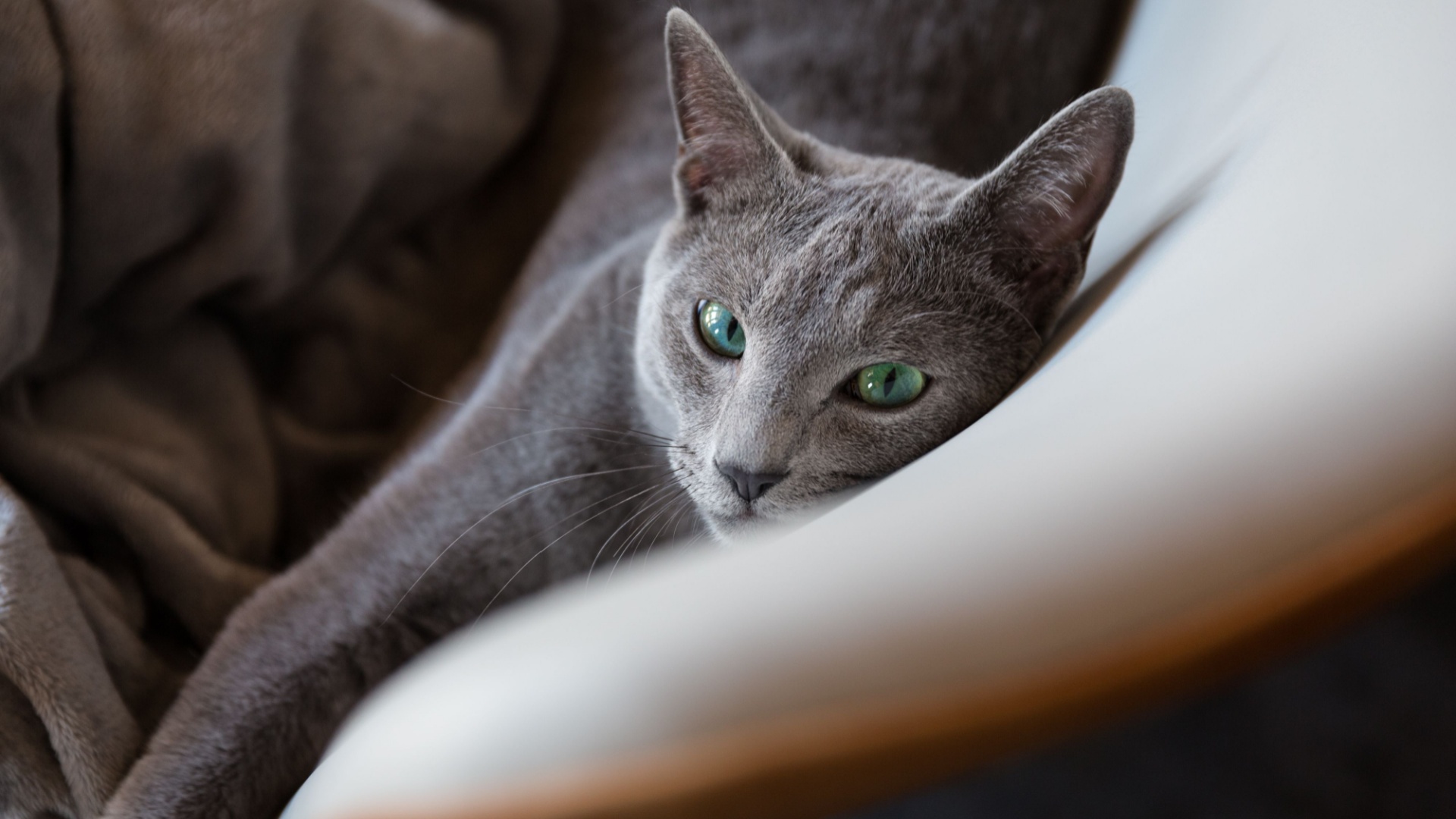Russian Blue Cats are one of the most intelligent cat breeds. Along with their beautiful double coats, and big green eyes, they are also very smart and sweet cats.
Even though they’re shorthaired cats, they’re famous for their soft double coat, and unusual color. They are also very healthy cats that have a typical lifespan of 15 to 20 years.
This breed has existed for centuries, and as the name says, the breed originates from Russia. It is believed that they were once owned by Russian Czars. So, because of that fact, people associate their elegance and loyalty with that time.
One of the most striking things about these cats is that Russian Blues create a strong bond with their owner, which makes them one of the most loyal cat breeds.
However, when it comes to their temperament, even the most ardent of Russian Blue fans will admit that they can be a little sensitive, especially if you neglect them.
Are Russian Blue Cats aggressive? They aren’t necessarily aggressive cats. On the contrary, they’re lovely cats. However, they can have their moments when things get complicated and they get a little aggressive.
So, if you’re a Russian Blue Cat lover, here are some possible reasons why are Russian Blue Cats aggressive. Read the article and find out if there are any solutions for this behavior!
1. Environmental Change
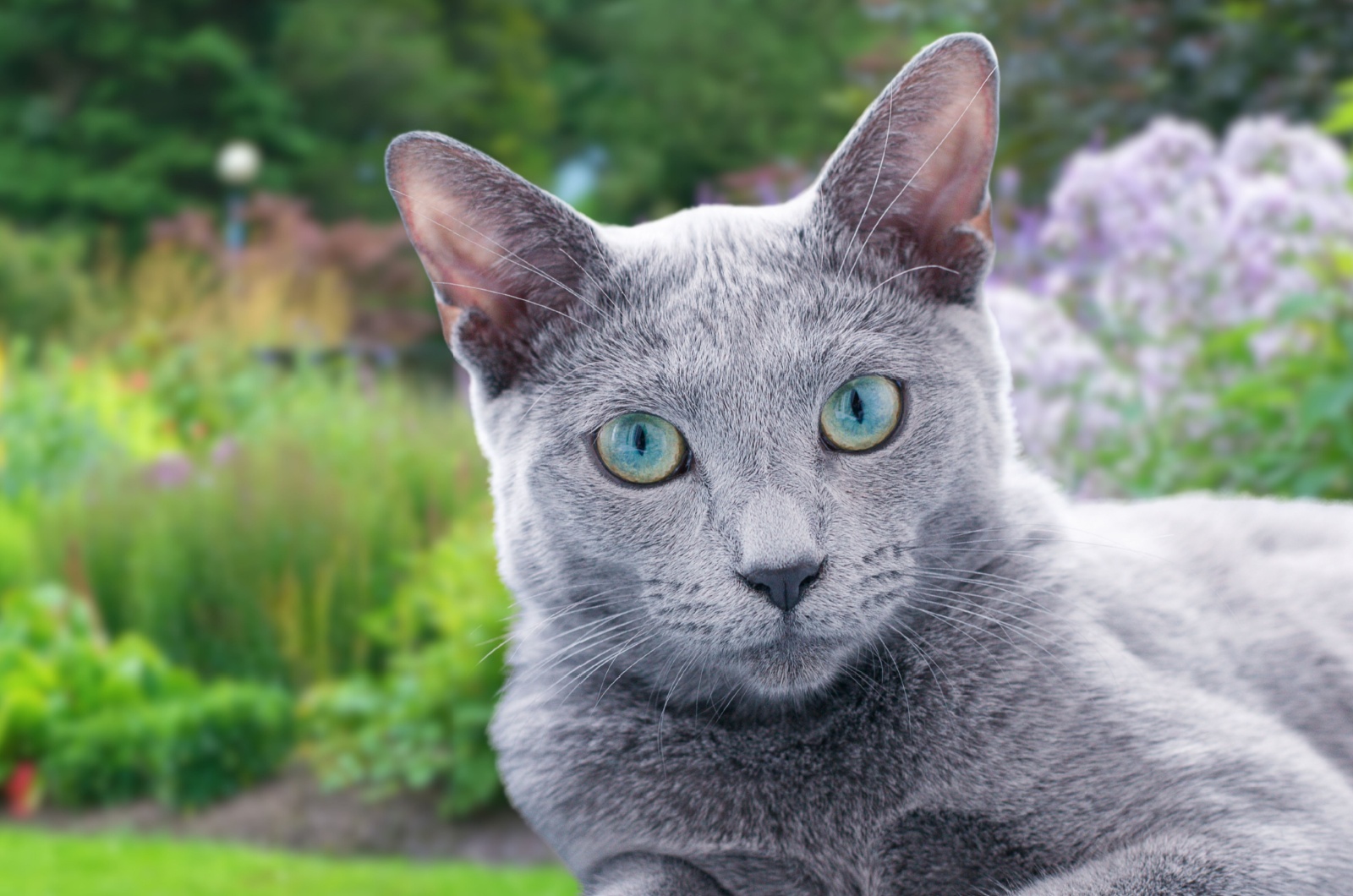
It may sound strange, but Russian Blues like to have a routine that is consistent. If you don’t respect that, the cat may become nervous and irritated.
The best example of changing routines is moving houses. If you have already experienced moving, you know how stressful it can be. Just imagine how disruptive this could be to your cat.
They may become aggressive because they are scared, and because they don’t feel safe in their new surroundings. It is best to give your cat time and space to adjust to the new environment.
Try to make the transition as easy as possible for your Russian Blue Cat. These cats definitely don’t like change.
2. Maternal Instinct Is Always The Strongest
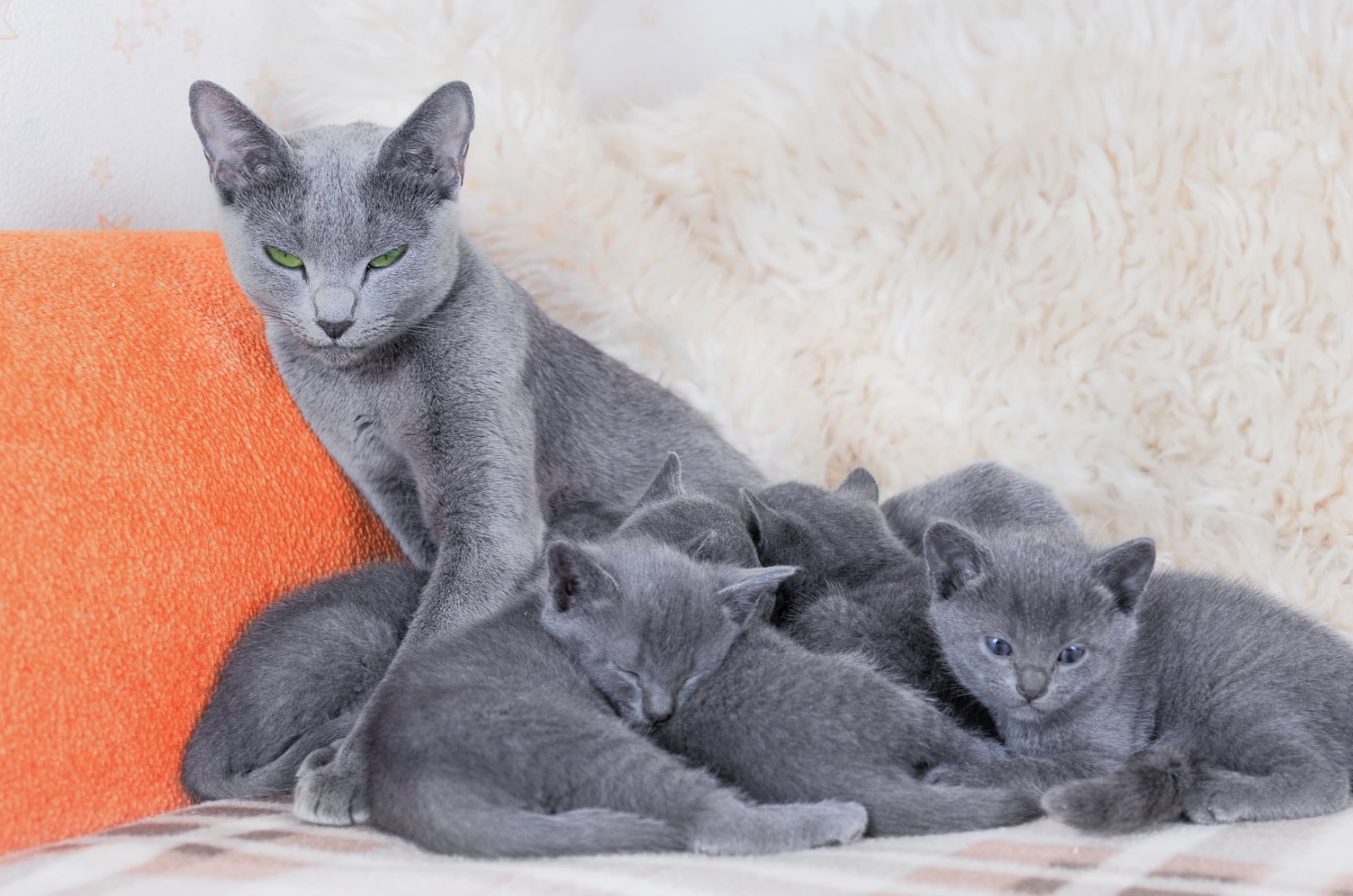
It is a well-known fact that maternal instinct is always the strongest, both in humans and animals. A cat will do anything to protect her kittens from anything she considers to be a threat.
This is especially true of Russian Blues. Even though your Russian Blue is sweet and lovely, don’t be surprised if she becomes fierce when it comes to her kittens, even if she trusts you. However, there are a few things you can do to keep your cat calm.
Remember to give your cat privacy during this period, especially if you’re having guests with whom your cat isn’t familiar. Separate her from other pets and make sure she is fed at the usual scheduled time.
3. Aggressive Play Time
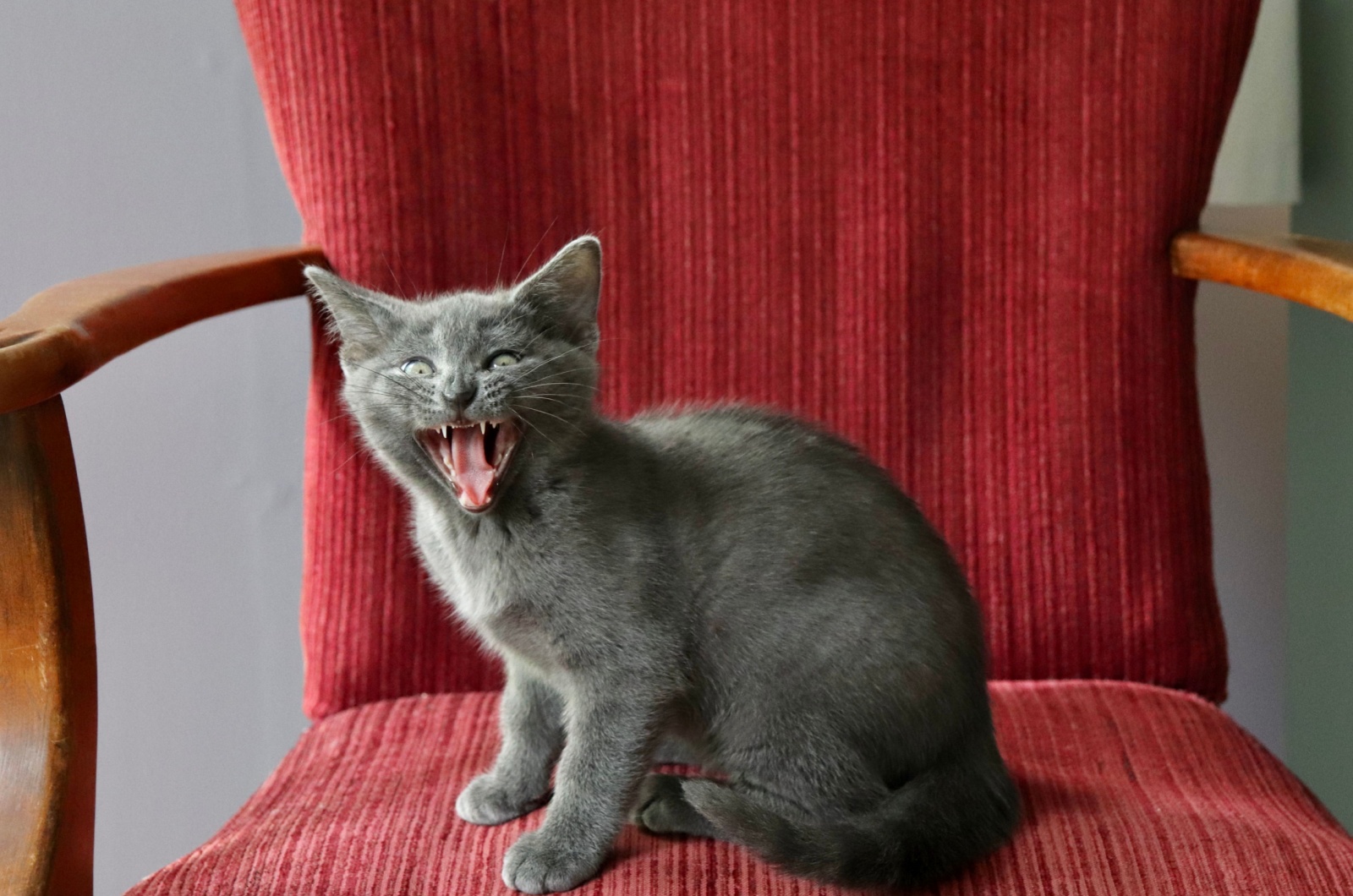
Russian Blues are lovely cats, and they are calm most of the time, especially if you’re not home. But keep in mind to have a playtime with your Russian Blue, as they’re very energetic and intelligent breeds.
But why are Russian Blue Cats aggressive while playing? They require a lot of attention, especially during play sessions. They may scratch you and bite a little, but not because they want to harm you, they’re just super excited about spending time with you.
They may even scratch the furniture around the house during playtime, or when they’re bored. The best thing to do is to show her that you don’t approve of that behavior. You can also provide your cat with scratching posts around the house.
The best place to put them is near the cat trees. If you’re having more than one cat, make sure you have more scratching posts and cat trees.
This is why you should also provide your Russian Blue with cat toys in order to keep her busy. If you want her to behave properly, my advice is that you should start training and socializing your Russian Blue as a kitten.
4. Russian Blue Cats Owning The Territory

If you decide to get your Russian Blue Cat a new companion, you may have a problem. These cats are extremely territorial and loyal to their owner. So when you get another pet, especially another cat, that could pose a problem.
Your Russian Blue may become aggressive towards a new pet, only because she’s used to having everything for herself and she has her own routine, which she doesn’t like to change. She may even leave her scent by rubbing her chin or urinating in order to mark her territory.
If you decide to get another pet, she’ll have to share everything with the new pet and maybe even adjust to a new routine, which can be tough for your cat.
Sometimes the problem can be if you already own a Russian Blue male cat and you get another male. They may become aggressive, trying to show who’s more dominant and who will be in charge.
If you’re still planning on getting your Russian Blue a roommate, the best thing you can do is to provide your cats with a few different spots around the house where they can play or rest.
Make sure to place cat beds or cat toys in these corners of the house so that every pet can have a corner for himself. That way, you’ll also reduce tension between the new roommates.
5. Aggressive Petting Time
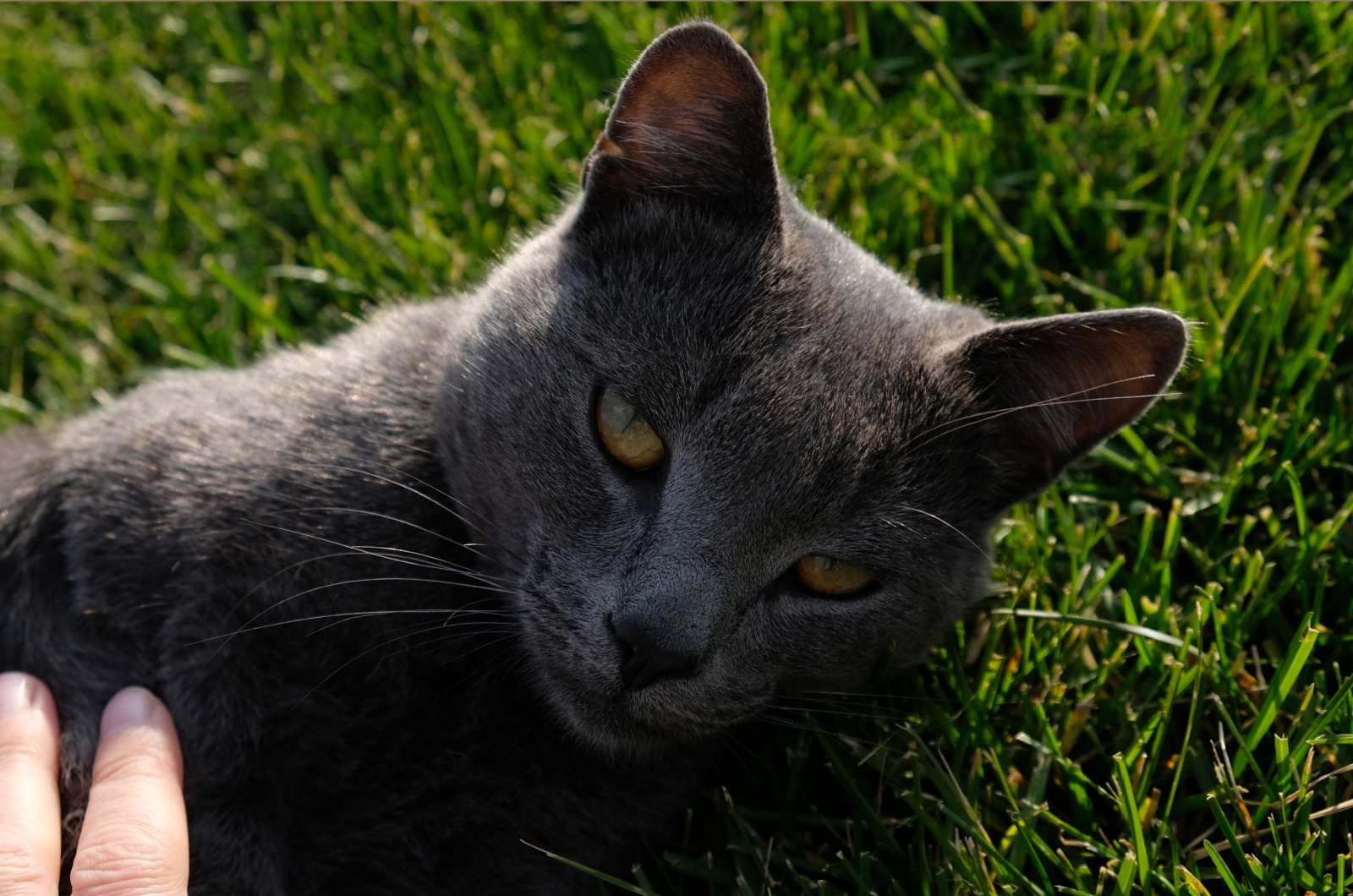
As I already said, the Russian Blue is a breed of cat with a sensitive temperament. They are loyal and sweet when they’re cuddling with their owner or other family members.
However, sometimes they may not be in the mood for petting, or they feel uncomfortable. If your cat feels that way, she may show signs of aggression, even to her owner.
Another thing is that the Russian Blue may feel uncomfortable when there are guests in the house. These cats simply don’t always feel safe around unknown people.
If you notice signs of aggression such as tail swishing or dilating pupils, leave the cat alone! The solution is – don’t go to the cat, let the cat come to you, don’t tease her. Who knows, perhaps she will come to you for a snuggle.
6. Hungry Cat Means Angry Cat

Are Russian Blue Cats aggressive when they are hungry? They can be. I mean, who doesn’t get a little “hangry” at times?
If you’re late with their meal, they may feel irritated. They’re hungry and if you’re late with the cat food, you’re ruining their routine. Just remember to feed them on time!
In addition, Russian Blues are very clean cats. So if you want your cat to be satisfied, make sure they have a clean litter box at all times. Don’t delay in cleaning it out when it needs it.
So, always respect your cat’s routine and don’t neglect her. A satisfied cat is a happy cat, right?
7. Predator Instinct
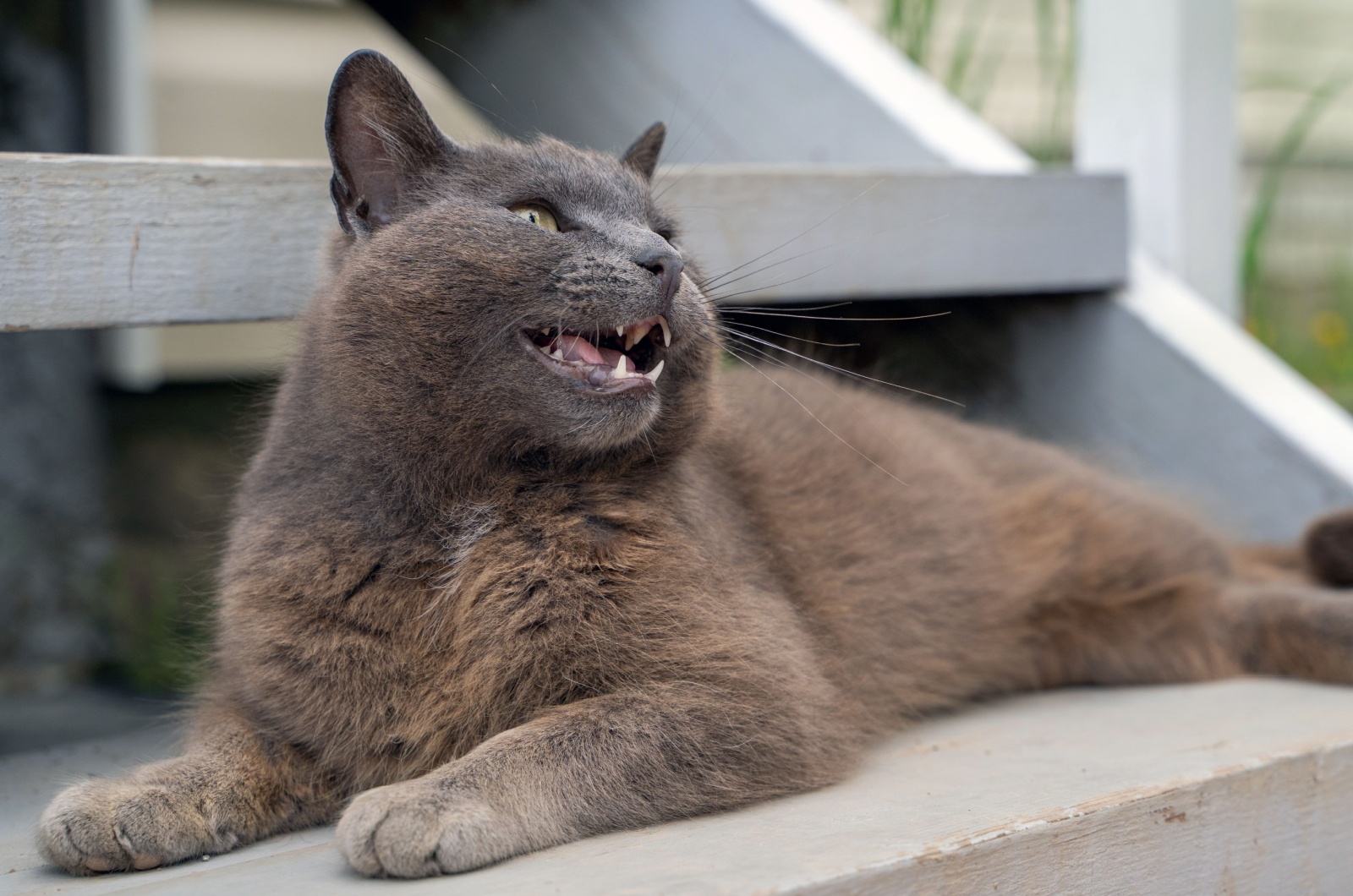
In nature, cats are natural predators and they retain this predator instinct in their domesticated form. They usually reserve their aggressive predator behavior for when they are hunting.
However, if your Russian Blue is an indoor cat, sometimes that can be a problem. Your Russian Blue may be irritated for not being able to get something that she wants, and then she may take it out on her owner, or even the other pet in the house.
This is called redirection and it can be dangerous, especially for other pets, if you have any. So, if something like that happens, you should calm your cat by putting her in another room. Make sure there are plenty of toys that can occupy her attention and help her calm down.
8. Russian Blue Cat Is Scared
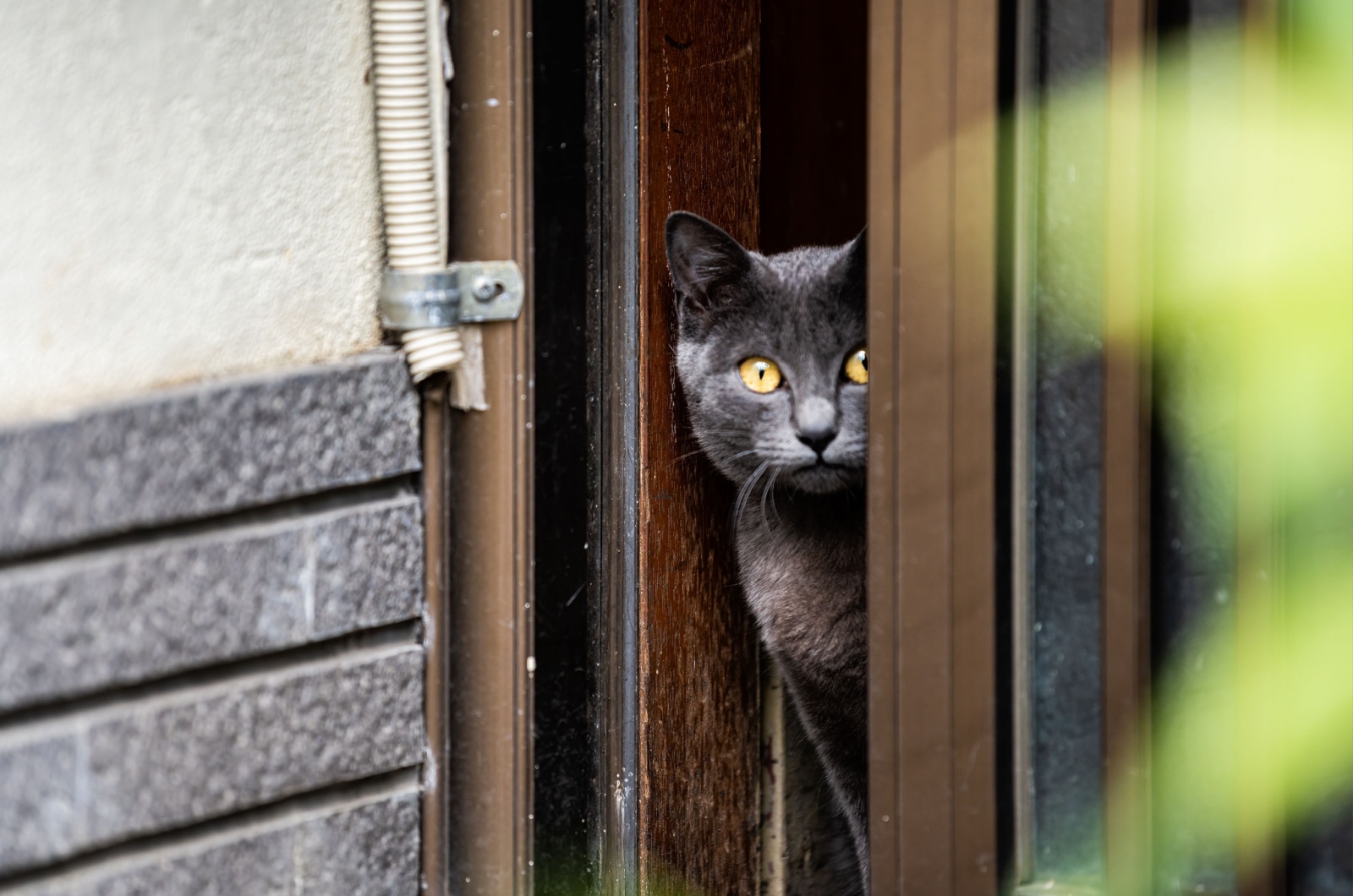
Are Russian Blue Cats aggressive when they’re scared? Yes, for some cats that can be a reason for their aggression.
Your cat may be scared when they’re around unknown people or animals. So if someone approaches them, they may react aggressively as a defense mechanism.
Russian Blues are the most comfortable around their owner and familiar people or animals. On the contrary, give your cat time to get used to others. Don’t push her or make her even more frightened.
9. Russian Blue Cat Is In Pain
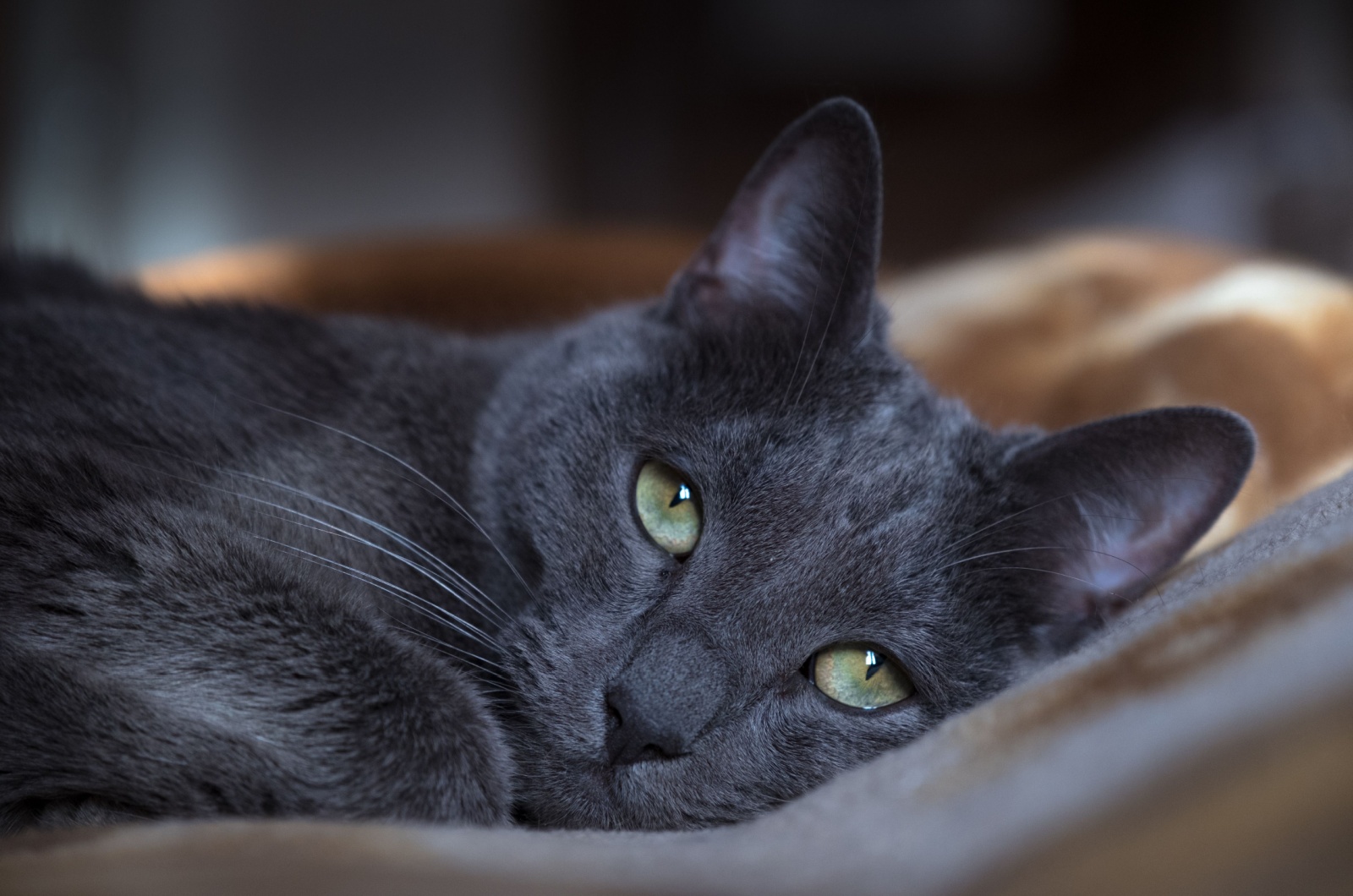
Some animals may express their pain through aggression, as they can’t tell you what is wrong with them.
Russian Blues may show signs of aggression when they’re in pain. If your cat reacts aggressively after you touch a certain area, you should check her, and take her to the veterinarian to see if there are any health issues.
Some of the health issues that can typically cause aggression include arthritis and other degenerative conditions. Sometimes, the reason for the cat’s aggression may be because of hormonal disbalance, or it can be genetic.
Just remember that with every sign, your cat wants to tell you something, so make sure you don’t ignore it!

